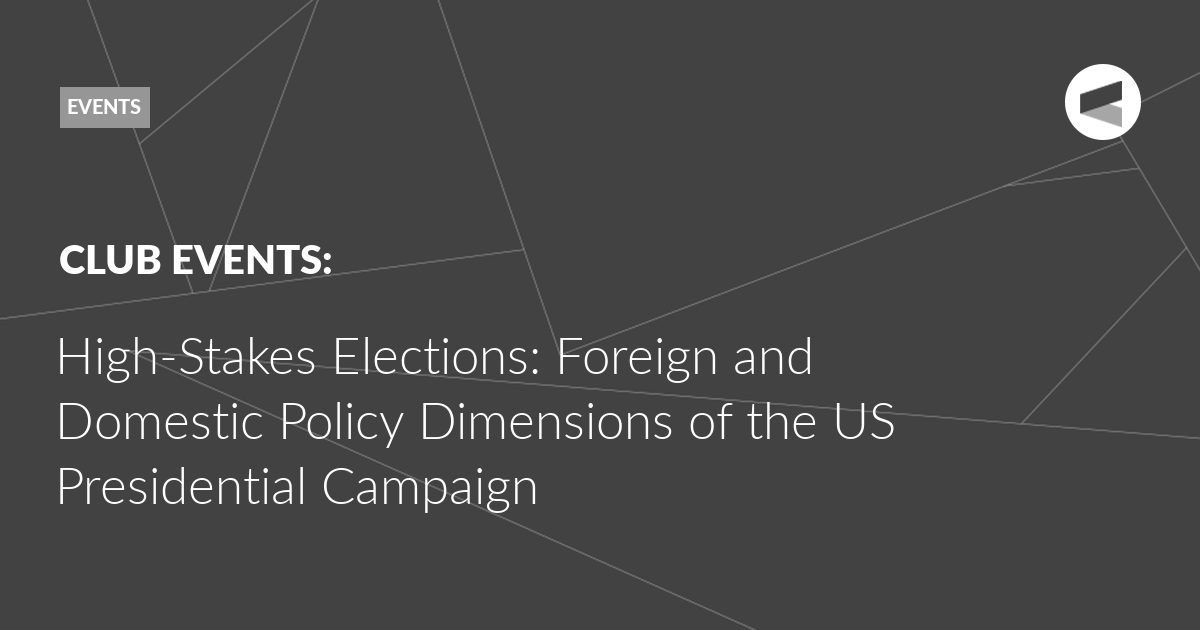On September 19, 2024, the Valdai Club hosted an expert discussion, titled “Elections in the USA: What Awaits Ukraine?” Moderator Andrey Sushentsovx noted that the American presidential elections scheduled for November 5 are of concern to most countries throughout the world, and will affect many areas of international life. For Vladimir Zelensky and his entourage, it is especially important who will lead the United States. The Ukrainian government is trying to adapt to any scenario.
Sergey Kislitsyn, Acting Director of the Institute of the USA and Canada at the Russian Academy of Sciences, analysed the economic dimension of the upcoming elections. He emphasised that the recent reduction in the key rate by the Federal Reserve, which occurred for the first time since 2020, shows that the Biden administration is generally coping with economic policy, including the inflation problem and job creation. Inflation is slowing down and unemployment is declining again, although jobs are being created mainly in the service sector. Although the administration is pursuing an industrial policy, it is mainly focused on the production of high-tech products, which does not help attract the blue collar workers that both presidential candidates talk about so much. This policy requires a certain degree of protectionism, and it will probably remain regardless of who wins the election (especially since this is in line with global trends). At the same time, the Biden administration has acted taking into account the fact that the Republicans could take the White House and embrace more aggressive forms of protectionism that destroy relations with European partners, and therefore created not trade agreements, but rather platforms for cooperation that Trump will probably not destroy.
Vladimir Pechatnov, professor of the Department of History and Politics of European and American Countries at MGIMO, believes that the current elections stand out from preceding ones in terms of volatility, but in themselves do not contain anything revolutionary. Nevertheless, the election campaign can serve as an indicator of deeper changes in American society. The main surprise, according to the expert, was the turn of voters in July-August in favour of the Democrats. He believes that an important factor is the “political technology re-equipment” of the Democrats – the refusal to whip up fear of Trump in favour of creating an image of him as a strange old eccentric who is not fit to be president, avoiding polarizing rhetoric and maintaining optimistic sentiments. “Laughter is a powerful weapon,” Pechatnov said, adding that this “politics of joy” exploits society’s fatigue from hostility, extremes and bitterness. A number of the Biden administration’s socio-economic successes also play a significant role. However, the outcome of the vote is not yet clear: the gap between the candidates is still small and Kamala Harris has too many weaknesses that Donald Trump can exploit.
Ivan Safranchuk, Director of the Centre for Eurasian Studies at the MGIMO Institute, opined that hopes that the US position on Ukraine will change in the event of a Republican victory are largely misleading. Donald Trump apparently has no feasible plan for the Ukrainian crisis and his approach is rather dictated by a rejection of the current administration’s policies. The basis of the Trump team’s idea apparently assumes a “draw” and fixation of the situation along the line of contact between combatants. However, according to Safranchuk, a conflict of such intensity, scale and dynamics cannot end like that – there must be a loser. “In addition, we do not have a common understanding of what the parameters of a draw might be. What a draw looks like to the Americans looks like a defeat to us, and what a draw looks like to us looks like a defeat to them,” he said. Accordingly, the Trump administration’s approach is unlikely to be effective. However, it is possible that it will stop positioning the Ukrainian conflict as the “central issue of our time,” which would be positive for the Russian Federation.
Dimitri Simes, Channel One host, founder and former president of The Center for the National Interest (USA), contended that the seriousness of what is happening around the elections is not to be underestimated, despite the exaggerated accusations and fears on both sides. “Undoubtedly, the stakes are very, very high,” he emphasised. In recent months, there have been at least two assassination attempts on the Republican candidate; 1,400 people are accused of various subversive activities in connection with January 6, 2021, several hundred of them remain behind bars. “In the United States, a situation has now developed where both sides in the elections think that the other side would definitely put them in jail if it could,” Simes said, pointing to the colossal level of mutual distrust between Republicans and Democrats, which will inevitably continue after the elections. When both sides think about the option of defeat, they suspect that in this case they can be taken to the back of the barn.
The Valdai Discussion Club was established in 2004. It is named after Lake Valdai, which is located close to Veliky Novgorod, where the Club’s first meeting took place.
Please visit the firm link to site






